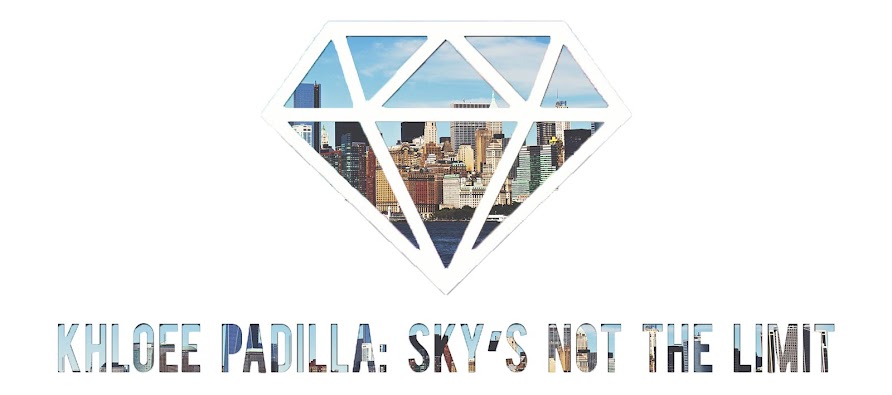Same Sex Marriage in the Philippines and the Introduction of the HB 6595 or the Civil Partnership Act
June 06, 2018
“It is about time that the Philippine government grant couples, whether they are of the opposite or the same sex, adequate legal instruments to recognize their partnerships, respecting their dignity and recognizing their equality before the law,” -Alvarez et al.
Gay marriage is a controversial issue in the Philippines as marriage has been recognized as the social union between a man and a woman as further stipulated in the Family Code. In recent times, same sex relationships are slowly gaining acceptance, as the LGBT community have become vocal in fighting for our right to marry. While the majority of the population believes that the legalization of gay marriage will have negative impact on the society, the LGBT community claim that it is against basic civil rights to prohibit us from marrying.
There are rights that are solely afforded to couples of the opposite sex when contracting a marriage, rights that are just as purposive to same sex couples as they are to opposite sex couples. Rights such as, but not limited to; property regime, inheritance rights, insurance memberships, adoption privilege, hospital and prison visitation rights, declaring your partner as beneficiary and special power of attorney. While it is true that there are other legal approaches that same sex couples may undertake to legitimize their union, albeit in a lesser and more limited extent, it would be against our constitutional human right of equality to deprive us of the same rights and to treat us as 2nd class citizens. Section 1 Article III of the Philippine Constitution states;
"SECTION 1. No person shall be deprived of life, liberty, or property without due process of law, nor shall any person be denied the equal protection of the laws.”
The real heart of the contentions against same sex marriage lie on the legality, morality, and misunderstanding of what homosexuality is. Firstly, morality is a collective of concepts, principles and beliefs by which an individual determines whether his or her actions are right or wrong. It is these concepts, principles and beliefs that are commonly the focus of arguments for and against the issue. Because everyone is brought up to believe and hold valuable different things, it is most difficult to say in moral terms what is right and what is wrong. The determination of what is right and wrong is what we rely on our legal system to provide, since often, we cannot agree in moral terms.
Legally speaking, There is no absolute prohibition against legitimizing civil unions between two Filipinos of the same sex. The 1987 Philippine Constitution, does not in any way discriminate nor prohibits same sex marriage. Thus, the Philippine Constitution does not impede against legalizing same-sex marriage in the Philippines and whatever legal impediments against the former can be fixed by the legislation. We just need an enabling law for same-sex couples to be afforded the same rights as opposite sex couples.
That is where the House Bill No. 6595 entitled “An Act Recognizing the Civil Partnership of Couples, Providing for their Rights and Obligations” comes in. Submitted through the House of Representatives, the same allows same-sex couples to enter into a civil partnership status and be able to equally enjoy the same rights as the opposite sex couples. It was introduced by Representatives Pataleon Alvares, Geraldine Roman, Raneo Abu, Frederick Abueg, et al. on the 10th of October 2017 and is currently being passed through a hearing.
Secondly, many people have misunderstood that sexual orientation is a choice, and that a homosexual can be reformed to be a heterosexual anytime they want. Homosexuality is NOT A CHOICE. It’s absurd to even suggest such. Logically speaking no one would ever deliberately choose to be seen as a 2nd class citizen, to be burdened with discrimination and abuses, to be battered again and again, to be negated, and to be deprived of equal rights. In fact, there have been thousand of studies that proves homosexuality as having biological causation. That means if a person is born to be gay, they cannot do anything about it they cannot change or choose their . Therefore it is not our choice to be homosexual, and it is not fair to treat us differently from others.
Thirdly, Since homosexuality is proven to be innate (like race), then moral objections to same-sex marriages are similar to moral objections to inter-racial marriages. Being denied the label of marriage devalues the same-sex relationship, implying the couple is less deserving than a different-sex couple.
Fourthly, as far as building a family is concerned, in today's modern science there are various ways in conception, that not only same sex couples go through but also opposite sex couples. We cannot directly say that we should remain with a "proven and tested" way of family building against same sex couples, as nothing is proven yet. We cannot use the term "proven and tested" against something we have not yet tried, it's not only absurd but also illogical.
Lastly, this apartheid way of thinking causes indirect effects that affects everyone. For straight people, the lack of full sanction for gay relationships creates a more polarized social view of gender. Studies show that children are particularly sensitive to what is socially approved and what is not. Boys raised in a homophobic culture learn to overemphasize masculine qualities, fear feminine qualities, and create more macho personas, as well as to fear being “loving” with their male friends. Girls are similarly affected in a negative way. As both learn to be less authentic to their true nature in an effort to fit social ideals, they create long-term psychological challenges for themselves. The pain of inauthenticity flares up in substance abuse, violence, sexual dysfunction, isolation, and divorce amongst many. We all crave being loved for who we are. To the degree that we create an inauthentic facade, we never have the feeling of full loving acceptance.
At the end of the day our issue lies in inequality, discrimination, and the deprivation of our right to equality. Our freedom to differ and, ultimately, our freedom to choose must not be limited by existing laws, especially when there is nothing that prohibits legislation accommodating legitimate calls for equality, which the Constitution itself enshrine. The legalization of gay marriage will not, by itself, alleviate all our society’s imbalances. What it will do, though, is create a more expanded sense for what we hold as sacred and worthy of respect. That will trickle down, creating more permission for every child to be authentic to themselves and, in the end, forge a society with a healthier balance of masculine and feminine qualities, less conflict, and more overall happiness. This will not only have benefits for gay citizens but literally for all.
Fourthly, as far as building a family is concerned, in today's modern science there are various ways in conception, that not only same sex couples go through but also opposite sex couples. We cannot directly say that we should remain with a "proven and tested" way of family building against same sex couples, as nothing is proven yet. We cannot use the term "proven and tested" against something we have not yet tried, it's not only absurd but also illogical.
Lastly, this apartheid way of thinking causes indirect effects that affects everyone. For straight people, the lack of full sanction for gay relationships creates a more polarized social view of gender. Studies show that children are particularly sensitive to what is socially approved and what is not. Boys raised in a homophobic culture learn to overemphasize masculine qualities, fear feminine qualities, and create more macho personas, as well as to fear being “loving” with their male friends. Girls are similarly affected in a negative way. As both learn to be less authentic to their true nature in an effort to fit social ideals, they create long-term psychological challenges for themselves. The pain of inauthenticity flares up in substance abuse, violence, sexual dysfunction, isolation, and divorce amongst many. We all crave being loved for who we are. To the degree that we create an inauthentic facade, we never have the feeling of full loving acceptance.
At the end of the day our issue lies in inequality, discrimination, and the deprivation of our right to equality. Our freedom to differ and, ultimately, our freedom to choose must not be limited by existing laws, especially when there is nothing that prohibits legislation accommodating legitimate calls for equality, which the Constitution itself enshrine. The legalization of gay marriage will not, by itself, alleviate all our society’s imbalances. What it will do, though, is create a more expanded sense for what we hold as sacred and worthy of respect. That will trickle down, creating more permission for every child to be authentic to themselves and, in the end, forge a society with a healthier balance of masculine and feminine qualities, less conflict, and more overall happiness. This will not only have benefits for gay citizens but literally for all.
“Practical solutions are preferable to ideological stalemates; accommodation is better than intransigence; reason more worthy than rhetoric. This will allow persons of diverse viewpoints to live together, if not harmoniously, then, at least, civilly.” - Supreme Court (Ladlad v. Comelec)
YOU CAN FOLLOW ME AND CONTACT ME AT MY SOCIAL MEDIA ACCOUNTS
_________________________
References:
- Messerli, Joe, Same Sex Marriages (Pros & Cons, Arguments For and Against), (2009)
- Parisella, John 2009, The inevitability of legalized gay marriages (2009)
- 1987 Philippine Constitution, Section 1 Article III
- EO No.209 The Family Code Article 1
- Alvarez et. al. House Bill No. 6595 “An Act Recognizing the Civil Partnership of Couples, Providing for their Rights and Obligations”
- Ladlad v. Comelec GR No. 180582 (2010)
- Hojilla, Kate, Same-sex marriage and its legal hindrance in the Philippines, AccraLaw Publications (2017)
- Porcalla, Delon, Civil partnership more feasible than same-sex marriage, The Philippine Star (2017)
- Dinan, Stephen, Why Gay Marriage is important, HuffingtonPoxt (2011)












0 comments